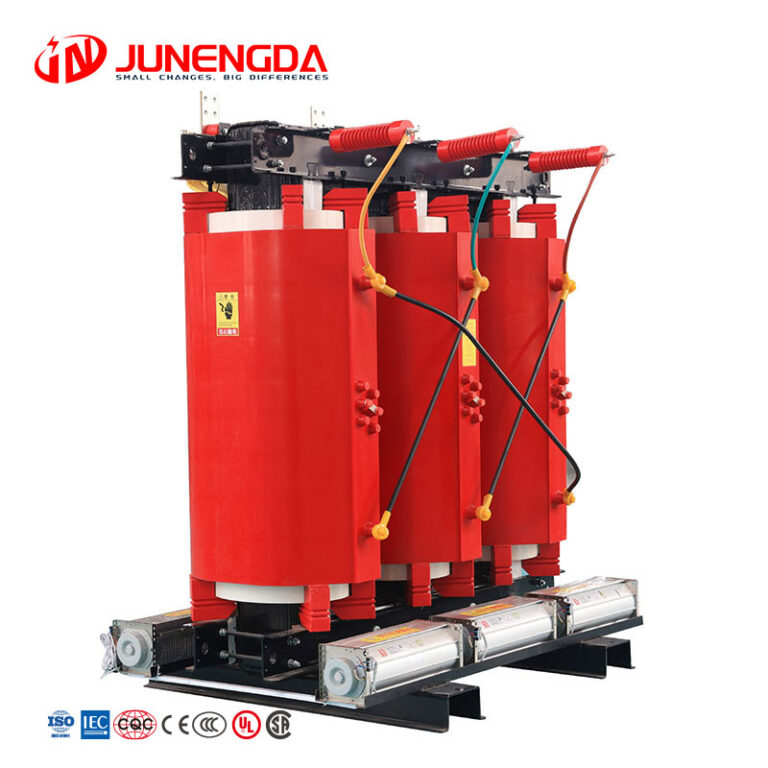Transformer substations are essential components in power distribution networks, helping to step up or step down voltages for efficient power transmission and delivery. Each type of transformer substation is tailored to specific operational needs, installation environments, and voltage capacities. In this article, we explore the various types of transformer substations, their applications, and benefits. We’ll also introduce industry-leading supplier Junengda Electrical, a high-tech enterprise recognized for delivering world-class transformer solutions.

Table of Contents
- Introduction to Transformer Substations
- 1. Pole-Mounted Transformer Substations
- 2. Pad-Mounted Transformer Substations
- 3. Compact Substations
- 4. Dry-Type Transformer Substations
- 5. Oil-Immersed Transformer Substations
- 6. Distribution Substations
- 7. Power Transformer Substations
- 8. 3-Phase Transformer Substations
- Why Choose Junengda Electrical?
- Summary Table
Introduction to Transformer Substations
Transformer substations are vital electrical infrastructure components that transform voltage levels to meet transmission, distribution, or end-user requirements. These substations are designed to improve energy efficiency, regulate voltage, and protect the grid from overload or faults. Their design varies based on the power capacity, cooling method, environment, and location.
1. Pole-Mounted Transformer Substations

Ideal for Rural and Remote Areas
Pole-mounted substations are small transformers installed on utility poles, typically used in rural or suburban distribution networks. They are cost-effective and easy to install.
- Installation: Mounted on wooden or concrete poles
- Voltage Range: Typically 11kV/400V
- Advantages: Low installation cost, minimal land use, easy maintenance
- Application: Rural electrification, residential areas
2. Pad-Mounted Transformer Substations

Compact and Safe Ground-Level Units
Pad-mounted substations are ground-based units enclosed in locked metal cabinets. They provide a safe solution for urban or suburban areas where underground distribution is used.
- Installation: On concrete pads
- Protection: Tamper-resistant enclosures
- Voltage Range: Typically up to 35kV
- Application: Residential communities, commercial buildings, parks
3. Compact Substations

All-in-One Solution for Tight Spaces
Compact transformer substations (also called kiosk substations) integrate the transformer, switchgear, and protection devices into a single enclosure. They are widely used in urban areas with limited space.
- Design: Pre-assembled and factory-tested
- Components: Transformer, HV and LV switchgear, protection relays
- Advantages: Fast installation, low space requirement, high safety
- Application: Industrial plants, city centers, shopping malls
4. Dry-Type Transformer Substations

Fire-Resistant and Low Maintenance
Dry-type substations use air or resin for cooling instead of oil. They are safe for indoor use and environmentally friendly, with excellent fire resistance.
- Cooling: Air natural (AN) or air forced (AF)
- Maintenance: Low
- Safety: Non-flammable, no risk of oil leaks
- Application: Hospitals, schools, airports, high-rise buildings
5. Oil-Immersed Transformer Substations
Reliable for High Power Requirements
These substations use mineral oil or synthetic fluids to cool and insulate the transformer. Oil-immersed substations are ideal for high voltage and high load applications.
- Cooling: Oil natural (ON) or oil forced (OF)
- Efficiency: High with better heat dissipation
- Monitoring: Regular oil tests required
- Application: Utilities, factories, infrastructure projects
6. Distribution Substations
Bridge Between Transmission and Consumer
Distribution substations step down high-voltage electricity from transmission lines to usable levels for local distribution. These are crucial nodes in the electrical supply chain.
- Voltage Levels: From 132kV to 33kV, down to 11kV or 0.4kV
- Features: Equipped with transformers, switchgear, protection systems
- Location: Near load centers
- Application: Regional and local electricity distribution
7. Power Transformer Substations
Handling Bulk Power Transmission
Power substations are designed for stepping up or stepping down bulk electrical energy at generation or transmission levels. They operate with large-capacity power transformers.
- Voltage Rating: Typically above 132kV
- Transformers: Large and oil-immersed
- Cooling: Oil or water cooling systems
- Application: Power generation stations, transmission networks
8. 3-Phase Transformer Substations
Standard for Modern Electrical Grids
Most transformer substations today use a three-phase configuration to ensure balanced power distribution. These are ideal for both residential and industrial use, especially in high-load environments.
- Phases: Three-phase (balanced loads)
- Designs Available: Dry-type, oil-immersed, pole-mounted
- Efficiency: Higher than single-phase systems
- Application: Power plants, commercial zones, factories
Why Choose Junengda Electrical for Transformer Substations?
Junengda Electrical is a globally recognized manufacturer of high-quality transformer substations and related equipment. As a designated supplier for Fortune 500 companies, Junengda delivers superior engineering, innovation, and after-sales support.
- Product Range:
- Pole Monuted Transformer
- Compact Substation
- Power Transformer
- Oil-immersed Transformer
- Pad Mounted Transformer
- Dry-type Transformer
- Distribution transformers
- 3-Phase-Transformer
- Expertise: In-house R&D team and senior engineers
- Quality: Advanced manufacturing systems and strict QC
- Customer Support: Turnkey electrical solutions tailored to client needs
Whether you need a standard substation or a custom-engineered solution, Junengda ensures optimal performance, safety, and reliability in every project.
Summary Table
| Substation Type | Main Features | Best For |
|---|---|---|
| Pole-Mounted | Compact, elevated installation, easy access | Rural areas, small residential loads |
| Pad-Mounted | Enclosed ground unit, safe, tamper-proof | Urban areas, schools, parks |
| Compact Substation | Integrated design, fast installation | Industrial, commercial, urban spaces |
| Dry-Type | Fire-safe, eco-friendly, indoor use | Hospitals, offices, airports |
| Oil-Immersed | High efficiency, large capacity | Factories, substations, infrastructure |
| Distribution | Steps down voltage for consumer use | Electric utilities, neighborhoods |
| Power Substation | Handles high-voltage bulk energy | Transmission lines, power plants |
| 3-Phase | Balanced load, high efficiency | Commercial and industrial sectors |
